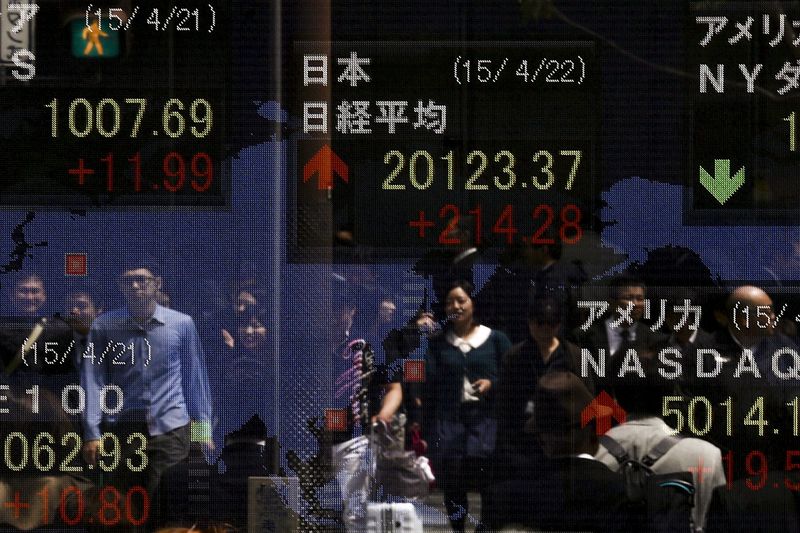This post was originally published on this site
https://i-invdn-com.akamaized.net/news/LYNXMPEB3M001_M.jpg
Investing.com – Asian stocks were mostly up on Friday, ending the week on a high over hopes that the U.S. would reveal fresh stimulus measures to combat COVID-19’s economic impact despite the incessant surge in the number of cases.
The U.S. Congress is scheduled to debate the new measures the following week, with some current stimulus measures due to expire at the end of July. But economic data released by China and the U.S. during the past week led some investors to point to a long road ahead to a full recovery for the global economy.
Data released by the National Bureau of Statistics on Thursday showed China posted a better-than-expected second quarter GDP growth year-on-year but saw June retail sales miss expectations.
“Data released over the last 24 hours seriously questions the speed of any post-Covid-19 economic recovery,” Michael McCarthy, chief market strategist at CMC Markets, told Bloomberg.
“The numbers illustrate the economic challenges posed by secondary infection outbreaks.”
The number of COVID-19 cases also shows no sign of slowing down, with over 13.7 million cases globally and almost 600,000 deaths as of July 17, according to Johns Hopkins University data. The U.S. reported a record-breaking 75,000 cases on Thursday, and Brazil topped 2 million cases.
Hong Kong’s Hang Seng Index was up 0.59% by 11:07 PM ET (4:07 AM GMT). The city reported a record high of 67 cases on Thursday.
China’s Shanghai Composite was up 0.37% and the Shenzhen Component jumped 2.06%.
Japan’s Nikkei 225 was down 0.24% and South Korea’s KOSPI gained 0.62%.
Down Under, the ASX 200 was down 0.15%, reversing earlier gains. The city of Melbourne, which re-imposed lockdown measures the previous week, saw a record increase of 428 cases on Thursday.
Meanwhile, investors are also keeping an eye on worsening U.S.-China tensions. The U.S. fired the latest shot, as it is considering banning all members of the Chinese Communist Party and their families from traveling to the U.S. The potential ban reverses President Donald Trump’s announcement on Wednesday that he would not impose further sanctions on Chinese entities involved in enacting Hong Kong’s national security laws.
U.S.-China relations soured during the past week over the U.S. disputing Chinese claims in the South China Sea as well as Trump removing Hong Kong’s special trade status and approving initial sanctions.

